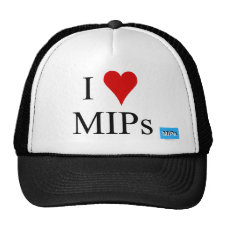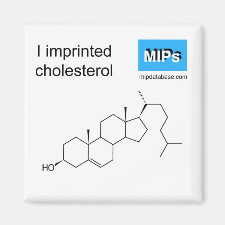
Authors: Egawa Y, Shimura Y, Nowatari Y, Aiba D, Juni K
Article Title: Preparation of molecularly imprinted cyclodextrin microspheres.
Publication date: 2005
Journal: International Journal of Pharmaceutics
Volume: 293
Issue: (1-2)
Page numbers: 165-170.
DOI: 10.1016/j.ijpharm.2004.12.020
Abstract: Molecularly imprinted cyclodextrins (MI-CDs) are prepared by cross-linking CDs in the presence of a template molecule. The binding ability of MI-CDs to the template molecule is specific; therefore, MI-CDs will prove to be useful materials. In this study, we prepared microspheres of MI-CDs (MSs-MI-CD) in a dimethylsulfoxide/poly(dimethylsiloxane) (PDMS) emulsion, using cholesterol as the template molecule. MSs-MI-CD were prepared under various conditions and were evaluated with respect to their morphology, size, and binding ability. MSs-MI-CD prepared at 65 [deg]C were in an aggregated form; however, we could prepare separated and uniform MSs-MI-CD at 95 [deg]C. The viscosity of PDMS influenced the size of MSs-MI-CD. The mean particle diameters of MSs-MI-CD prepared with 50 and 1000 mm2/s PDMS were 146 and 43 μm, respectively. The binding ability of MSs-MI-CD to cholesterol was higher than that of non-imprinted microspheres. Cholesterol imprinting also promoted the binding ability to other steroids; however, the increase in binding ability was most remarkable in the case of cholesterol, suggesting that we successfully introduced the cholesterol-specific binding ability into MSs-MI-CD. The novel MSs-MI-CD preparation method is useful and simple, and it will provide opportunities for further studies on the specific binding ability of MI-CDs
Template and target information: cholesterol
Author keywords: cyclodextrin, microsphere, molecularly imprinted polymer, molecular recognition, cholesterol, poly(dimethylsiloxane)



Join the Society for Molecular Imprinting

New items RSS feed
Sign-up for e-mail updates:
Choose between receiving an occasional newsletter or more frequent e-mail alerts.
Click here to go to the sign-up page.
Is your name elemental or peptidic? Enter your name and find out by clicking either of the buttons below!
Other products you may like:
 MIPdatabase
MIPdatabase









